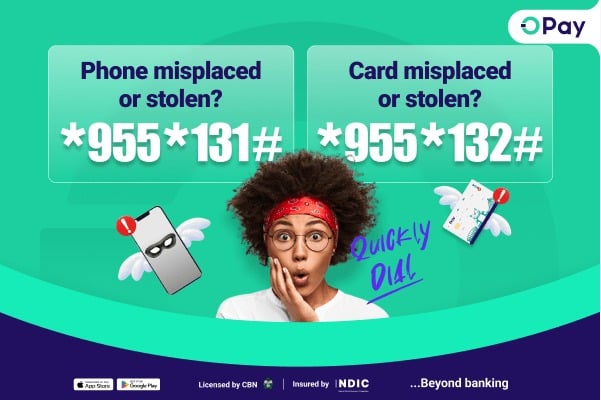BY OLALEKAN FAKOYEJO
With Nigerian bank account holders losing over N2 billion in 2023 due to missing and lost cards, card theft, and pin compromise, protecting your hard-earned money has become paramount.
Students, workers, and business owners could lose their school fees, salaries and revenue, respectively, due to card misplacement and theft, as well as pin compromise.
To protect Nigerians from being a victim of fraudulent transactions in cases of stolen phones or cards, OPay, a one-stop financial service platform, has introduced unstructured supplementary service data (USSD) codes.
In case of stolen phones, OPay has rolled out *955*131#, a USSD code that allows users to lock their OPay account on any phone instantly.
Also, the payment platform has introduced *955*132#, a USSD code that allows users to lock their OPay card with a single dial on their phone. This gives OPay users immediate and direct control over their financial security.
OPay’s new security features have empowered users — reliant on its digital financial solutions — to prevent unauthorised access to their accounts and secure their money at anytime and anywhere with just a dial.
Advertisement
With these codes, OPay intends to strengthen existing financial security features — such as two-factor verification and auto teller machine (ATM) pin – to safeguard customers’ funds.
For users, agents and merchants, the USSD codes complement the other layer of protection OPay provides; the advanced fraud detection system which triggers a double confirmation alert. This is coupled with the insurance coverage of N5 million provided by the Nigeria Deposit Insurance Corporation (NDIC) for OPay users which is the same as other commercial banks.
Advertisement
Views expressed by contributors are strictly personal and not of TheCable.
Add a comment







